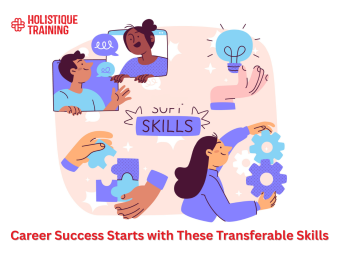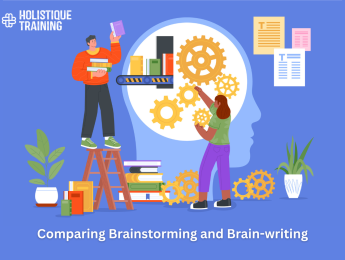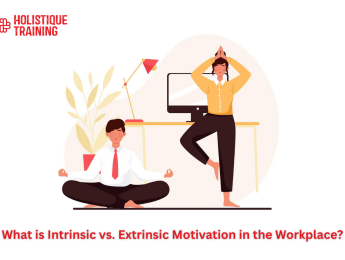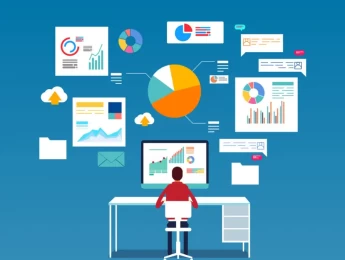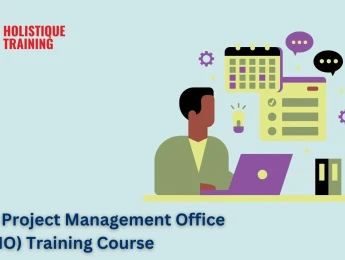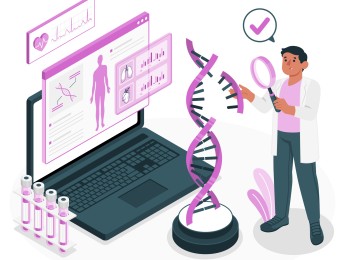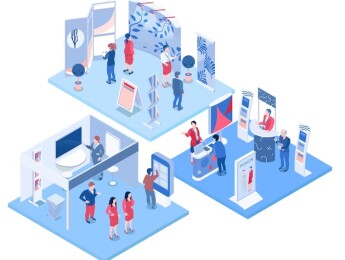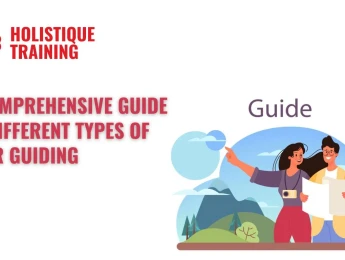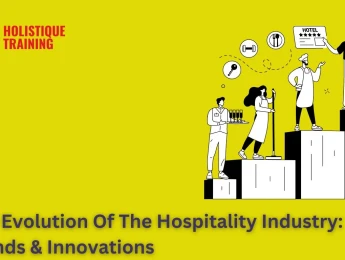- Table of Contents
- Introduction
- What Does Transferable Skills Mean?
- Why Are Transferable Skills Important?
- 1. Enhanced Employability:
- 2. Facilitating Career Transitions:
- 3. Supporting Lifelong Learning and Growth:
- 4. Promoting Interpersonal Effectiveness:
- 5. Enabling Leadership and Influence:
- 6. Encouraging Flexibility and Resilience:
- 7. Fostering Innovation and Creativity:
- 15 In-Demand Transferable Skills
- 1. Problem Solving:
- 2. Analytical Thinking:
- 3. Leadership:
- 4. Teamwork:
- 5. Communication Skills:
- 6. Adaptability:
- 7. Active Listening:
- 8. Creativity:
- 9. Project Management:
- 10. Relationship Building:
- 11. Organization:
- 12. Technical Skills:
- 13. Time Management:
- 14. Emotional Intelligence:
- 15. Negotiation:
- How to List Your Transferable Skills on Your Resume
- 1. Tailor Your Resume to the Job Description:
- 2. Create a Dedicated Skills Section:
- 3. Use Specific Examples and Quantify Achievements:
- 4. Integrate Skills Throughout Your Resume:
- 5. Use Industry-Specific Keywords:
- 6. Highlight Soft Skills Alongside Technical Skills:
- 7. Showcase Skills in Action:
- 8. Provide Context for Your Skills:
- 9. Include Relevant Certifications or Training:
- 10. Keep Your Resume Concise and Focused:
- Steps to Improve Your Transferable Skills
- 1. Self-Assessment:
- 2. Set Goals:
- 3. Seek Learning Opportunities:
- 4. Practice Regularly:
- 5. Reflect and Adjust:
- 6. Network and Collaborate:
- 7. Stay Updated:
- 8. Embrace Challenges:
- 9. Seek Feedback:
- 10. Cultivate a Growth Mindset:
- Conclusion
Introduction
The modern job market is a dynamic landscape where change is the only constant. As industries evolve and technology advances, the skills required to thrive in various professions are continually shifting. Amidst this flux, one aspect remains steadfast: the value of transferable skills. This blog post explores the concept of transferable skills, delving into their meaning, significance, and how they can be leveraged to enhance career prospects. We will also provide a comprehensive list of 15 in-demand transferable skills, guidance on how to showcase them on your resume, and steps to cultivate these skills for personal and professional growth.
What Does Transferable Skills Mean?
Transferable skills are abilities and competencies that are not tied to a specific job or industry. They are versatile skills that can be applied across different roles and sectors, making them invaluable for career mobility and adaptability. Unlike technical skills, which are often job-specific, transferable skills are more general and can be utilized in various situations. Examples include communication, leadership, problem-solving, and teamwork. These skills are developed through experiences in education, work, volunteering, and other life activities, and they serve as a foundation for success in any career path.
Why Are Transferable Skills Important?
Transferable skills hold a pivotal role in shaping successful careers and personal development. Their importance stems from several key aspects that collectively enhance an individual's professional journey and adaptability in a rapidly evolving world. In fact,according to a report byMcKinsey & Company, the demand for transferable skills is expected to rise significantly over the next decade, while the necessity for manual and repetitive tasks is anticipated to decline.
1. Enhanced Employability:
In today's competitive job market, employers are not just looking for candidates with specific technical expertise. They value individuals who bring a diverse set of skills that can be applied across various roles and situations. Transferable skills such as communication, problem-solving, and teamwork are universally sought after because they indicate a candidate's ability to contribute effectively in different contexts. These skills demonstrate an applicant's readiness to take on new challenges, adapt to different work environments, and collaborate with diverse teams, making them more attractive to potential employers.
2. Facilitating Career Transitions:
As industries evolve and new opportunities emerge, professionals often find themselves exploring career changes or shifts into new sectors. Transferable skills act as a bridge during these transitions. For instance, a project manager moving from the tech industry to healthcare can leverage their organizational and leadership skills to manage healthcare projects effectively. These skills minimize the learning curve, allowing individuals to apply their existing competencies to new roles, thereby easing the transition and boosting confidence in unfamiliar settings.
3. Supporting Lifelong Learning and Growth:
Transferable skills are foundational to lifelong learning—a crucial aspect of personal and professional growth. As individuals encounter new experiences, these skills enable them to learn and adapt continuously. Skills like analytical thinking and adaptability empower professionals to embrace new technologies, methodologies, and ideas, fostering a culture of innovation and continuous improvement. This adaptability is essential in a world where change is constant and the ability to learn and evolve is a significant asset.
4. Promoting Interpersonal Effectiveness:
Many transferable skills, such as communication, active listening, and emotional intelligence, are centered around interpersonal effectiveness. These skills enhance an individual's ability to interact positively with colleagues, clients, and stakeholders. Effective communication ensures that ideas are conveyed clearly, reducing misunderstandings and fostering collaboration. Emotional intelligence aids in understanding and managing emotions, leading to healthier workplace relationships and a more harmonious work environment.
5. Enabling Leadership and Influence:
Leadership is not confined to those in managerial positions; it is a skill that can be demonstrated at any level within an organization. Transferable skills such as leadership and relationship building allow individuals to inspire and motivate others, driving collective success. These skills enable professionals to take initiative, influence decision-making, and lead projects, regardless of their official job title. By cultivating leadership qualities, individuals can position themselves as valuable assets to their teams and organizations.
6. Encouraging Flexibility and Resilience:
The ability to adapt to change and remain resilient in the face of challenges is increasingly important in today's fast-paced work environment. Transferable skills like adaptability and problem-solving equip individuals to handle unexpected situations and overcome obstacles. This flexibility not only contributes to personal resilience but also enhances an organization's ability to navigate change successfully. Professionals who can pivot and respond effectively to shifting circumstances are invaluable in maintaining organizational stability and driving progress.
7. Fostering Innovation and Creativity:
Innovation is the lifeblood of progress, and transferable skills such as creativity play a crucial role in fostering it. Creative thinking encourages individuals to approach problems from unique angles and develop novel solutions. This skill is essential for driving innovation within organizations, leading to the development of new products, services, and processes that can differentiate a company from its competitors. By nurturing creativity, professionals contribute to a culture of innovation that propels both personal and organizational growth.
In summary, transferable skills are indispensable in navigating the complexities of the modern workforce. Their versatility and applicability across various roles and industries make them a key factor in enhancing employability, facilitating career transitions, and supporting lifelong learning. By investing in the development of these skills, individuals can unlock their potential, adapt to change, and thrive in diverse professional environments.
15 In-Demand Transferable Skills
Transferable skills are essential competencies that enhance career mobility and adaptability, allowing individuals to succeed in various roles and industries. Here, we delve deeper into 15 in-demand transferable skills that are highly valued in the workforce.
1. Problem Solving:
Problem-solving is a critical skill that involves identifying issues, analyzing possible solutions, and implementing effective strategies to resolve them. It requires creativity, analytical thinking, and persistence. Skilled problem solvers can navigate complex situations, make informed decisions, and drive positive outcomes, making them indispensable in any organization.
2. Analytical Thinking:
Analytical thinking is the ability to assess information critically and make sound judgments based on data. This skill involves interpreting data, recognizing patterns, and drawing logical conclusions. Analytical thinkers excel in roles that require data-driven decision-making, such as finance, research, and strategic planning, where precision and insight are paramount.
3. Leadership:
Leadership is about inspiring and guiding teams towards achieving common goals. Effective leaders possess vision, motivation, and the capacity to manage and support others. They cultivate a positive work environment, foster collaboration, and drive organizational success. Leadership skills are crucial for career advancement and are applicable in any role, regardless of formal authority.
4. Teamwork:
Teamwork is the ability to collaborate effectively with others to achieve shared objectives. It involves communication, cooperation, and the ability to work harmoniously with diverse groups. Strong teamwork skills enhance productivity and innovation, as they allow for the pooling of ideas and resources to tackle challenges collectively.
5. Communication Skills:
Communication skills encompass the ability to convey ideas clearly and effectively, both verbally and in writing. Strong communicators can articulate their thoughts, listen actively, and ensure mutual understanding. This skill is vital for building relationships, influencing others, and facilitating collaboration across teams and departments.
6. Adaptability:
Adaptability is the capacity to adjust to new circumstances, embrace change, and remain flexible in the face of uncertainty. In a rapidly changing world, adaptable individuals can pivot strategies, learn new skills, and thrive in dynamic environments. This skill is crucial for maintaining resilience and innovation in the workplace.
7. Active Listening:
Active listening involves fully concentrating, understanding, responding, and remembering what is being said. It fosters better relationships and enhances communication by ensuring all parties feel heard and valued. Active listeners can build trust, resolve conflicts, and collaborate more effectively, making them valuable team members.
8. Creativity:
Creativity is the ability to think outside the box and generate innovative ideas. Creative individuals approach problems from unique angles and contribute fresh perspectives to projects and discussions. This skill drives innovation, allowing organizations to develop new products, services, and processes that differentiate them from competitors.
9. Project Management:
Project management involves planning, executing, and overseeing projects to ensure they are completed successfully. Project managers must be organized, detail-oriented, and capable of managing resources and timelines effectively. This skill is essential for coordinating tasks, meeting deadlines, and achieving strategic objectives.
10. Relationship Building:
Relationship building is the ability to establish and maintain strong professional connections. It involves empathy, trust, and effective communication, fostering networks that support career advancement. Skilled relationship builders can collaborate across teams, influence stakeholders, and drive organizational success through strategic partnerships.
11. Organization:
Organizational skills enable individuals to manage their time, tasks, and resources efficiently. Being organized helps maintain focus, meet deadlines, and reduce stress, contributing to overall productivity. This skill is vital for roles that require multitasking and prioritization, such as administration, logistics, and management.
12. Technical Skills:
Technical skills, while often job-specific, can be transferable across industries. Proficiency in software applications ,data analysis tools, or digital platforms enhances efficiency and effectiveness in various roles. These skills are increasingly important in a technology-driven world, where digital literacy is a key asset.
13. Time Management:
Time management is the ability to prioritize tasks and manage time effectively to meet goals and maintain work-life balance. This skill helps individuals stay focused and productive, minimizing procrastination and optimizing workflow. Effective time management is crucial for achieving personal and professional objectives.
14. Emotional Intelligence:
Emotional intelligence involves recognizing, understanding, and managing emotions in oneself and others. It enhances interpersonal interactions and decision-making, promoting a positive work environment. Emotionally intelligent individuals can navigate social complexities, resolve conflicts, and lead with empathy and insight.
15. Negotiation:
Negotiation skills are crucial for reaching agreements and resolving conflicts. Effective negotiators can advocate for their interests while finding mutually beneficial solutions, fostering cooperation and collaboration. This skill is essential in roles that involve stakeholder management, sales, and contract negotiation, where influence and diplomacy are key.
These transferable skills are not only essential for career success but also contribute to personal development and fulfillment. By cultivating these skills, individuals can enhance their employability, adaptability, and effectiveness in various professional settings, positioning themselves as valuable assets in the workforce.
How to List Your Transferable Skills on Your Resume
Effectively showcasing transferable skills on your resume is crucial to demonstrate your versatility and potential value to prospective employers. Here’s a detailed guide on how to strategically highlight these skills:
1. Tailor Your Resume to the Job Description:
A national survey revealed that 57% of displaced workers are not highly confident in identifying their transferable skills. That’s why it’s important to begin by thoroughly reviewing the job description to identify the transferable skills that are most relevant to the position you are applying for. Employers often list specific competencies they are seeking, so aligning your resume with these requirements can significantly enhance your chances of being noticed. Customize your resume for each application by emphasizing the skills that match the job's demands.
2. Create a Dedicated Skills Section:
Include a dedicated skills section in your resume to prominently display your transferable skills. This section should be concise yet comprehensive, using bullet points for clarity and readability. Organize your skills in order of relevance or importance, starting with those most pertinent to the job you’re applying for. This makes it easy for hiring managers to quickly assess your capabilities.
3. Use Specific Examples and Quantify Achievements:
Provide concrete examples of how you have applied transferable skills in previous roles. For instance, if you’re highlighting teamwork, mention a successful project where collaboration led to a positive outcome. Quantifying achievements with numbers, percentages, or specific results can add impact and credibility. For example, “Led a team of five to increase project efficiency by 30% through improved communication and collaboration.”
4. Integrate Skills Throughout Your Resume:
Transferable skills should be woven throughout your resume, not just confined to the skills section. Incorporate them into your work experience, education, and volunteer sections to reinforce their relevance and application. When describing past roles, highlight how these skills contributed to your success and the value you brought to the organization.
5. Use Industry-Specific Keywords:
Employers often use applicant tracking systems (ATS) to filter resumes based on keywords. To ensure your resume passes through these systems, include industry-specific keywords related to your transferable skills. This alignment with the job description and industry standards can increase the likelihood of your resume being seen by human eyes.
6. Highlight Soft Skills Alongside Technical Skills:
While technical skills are important, soft skills such as communication, leadership, and adaptability are equally valued. Ensure your resume reflects a balance of both, showcasing your ability to perform job-specific tasks while also demonstrating interpersonal and organizational capabilities. This holistic approach presents you as a well-rounded candidate.
7. Showcase Skills in Action:
Whenever possible, illustrate how your transferable skills have been applied in real-world scenarios. Use action verbs to describe your experiences, such as “coordinated,” “implemented,” “facilitated,” or “negotiated.” This not only demonstrates your active engagement with these skills but also provides a dynamic picture of your professional contributions.
8. Provide Context for Your Skills:
Contextualize your skills by explaining the situations in which they were developed or utilized. For example, if you’re highlighting adaptability, mention how you successfully navigated a major organizational change or adapted to new technologies. Providing context helps employers understand the depth and applicability of your skills.
9. Include Relevant Certifications or Training:
If you have certifications or training that support your transferable skills, be sure to include them in your resume. This adds credibility and shows commitment to professional development. Certifications in project management, communication, or leadership, for example, can enhance your profile and demonstrate proficiency in key areas.
10. Keep Your Resume Concise and Focused:
While it’s important to showcase your skills, ensure your resume remains concise and focused. Avoid overwhelming the reader with excessive information. Instead, prioritize the most relevant skills and experiences that align with the job you’re applying for. A well-organized, targeted resume is more likely to make a strong impression.
By strategically highlighting your transferable skills on your resume, you can effectively demonstrate your adaptability, versatility, and potential to contribute to an organization. This approach not only enhances your employability but also positions you as a dynamic candidate capable of thriving in diverse roles and environments.
Steps to Improve Your Transferable Skills
Improving transferable skills is a continuous process that requires dedication, self-awareness, and proactive engagement. Here’s a detailed guide on how to enhance these skills effectively:
1. Self-Assessment:
Begin by evaluating your current skill set to identify strengths and areas for improvement. Reflect on your experiences and consider feedback from colleagues, mentors, or supervisors. Self-assessment tools, such as the below:
Self-Assessment Tool | Description |
Skills Inventory | A checklist to evaluate current skills and identify gaps |
Personality Test | An assessment to understand personality traits and how they affect work style |
SWOT Analysis | A framework to identify strengths, weaknesses, opportunities, and threats |
Feedback Surveys | Tools to gather insights from peers and supervisors on performance |
Career Aptitude Test | An evaluation to determine suitable career paths based on skills and interests |
2. Set Goals:
Establish specific, measurable goals for developing your transferable skills. These goals should be aligned with your career aspirations and personal growth objectives. For example, if you aim to improve your leadership skills, set a goal to lead a project or volunteer for a leadership role in a community organization. Clearly defined goals provide direction and motivation. Here’s an example:
Goal | Timeframe | Action Step |
Improve communication skills | 6 months | Enroll in a public speaking course |
Enhance leadership abilities | 1 year | Volunteer for team leadership roles |
Develop adaptability | 3 months | Participate in diverse projects |
Boost creativity | 6 months | Attend creative workshops |
Strengthen critical thinking | 1 year | Engage in problem-solving activities |
3. Seek Learning Opportunities:
Engage in training programs, workshops, and online courses to expand your knowledge and skills. Many platforms offer courses on communication, project management, emotional intelligence, and other transferable skills. Additionally, attending seminars and conferences can expose you to new ideas and best practices. Continuous learning is vital for keeping skills relevant and up-to-date.
4. Practice Regularly:
Apply your skills in real-world scenarios to reinforce learning. Volunteer for projects at work, join clubs, or participate in activities that challenge your abilities. For instance, if you want to improve your problem-solving skills, take on complex tasks that require critical thinking and innovation. Regular practice helps solidify skills and build confidence.
5. Reflect and Adjust:
Regularly reflect on your progress and adjust your strategies as needed. Consider what’s working well and where you might need to change your approach. Be open to feedback and willing to adapt your plans to suit evolving goals and circumstances. Reflection encourages self-awareness and continuous improvement.
6. Network and Collaborate:
Connect with professionals in your field to learn from their experiences and gain new perspectives. Networking can provide opportunities to collaborate on projects, share knowledge, and receive mentorship. Engaging with diverse groups can enhance your interpersonal skills and expose you to different ways of thinking and problem-solving.
7. Stay Updated:
Keep abreast of industry trends and advancements to ensure your skills remain relevant and competitive. Subscribe to industry publications, join professional associations, and participate in online forums. Staying informed helps you anticipate changes in the job market and adapt your skills to meet emerging demands.
8. Embrace Challenges:
Don’t shy away from challenging situations that push you out of your comfort zone. Embracing challenges can accelerate skill development and foster resilience. Whether it’s taking on a difficult project or learning a new technology, facing challenges head-on builds confidence and expands your capabilities.
9. Seek Feedback:
Actively seek feedback from peers, supervisors, and mentors to gain insights into your performance and areas for improvement. Constructive feedback can highlight blind spots and provide guidance on how to enhance your skills. Be receptive to criticism and use it as a tool for growth.
10. Cultivate a Growth Mindset:
Adopt a growth mindset, which involves believing in your ability to develop and improve through effort and learning. This mindset encourages perseverance, adaptability, and a positive attitude towards challenges. By embracing the idea that skills can be developed, you are more likely to take proactive steps towards improvement.
By following these steps, you can effectively enhance your transferable skills, positioning yourself as a versatile and valuable asset in the workforce. Continuous improvement not only boosts employability but also contributes to personal development and fulfillment, enabling you to thrive in diverse professional environments.
Conclusion
Transferable skills are the cornerstone of career success in an ever-changing job market. By understanding their importance, identifying key skills, and actively working to improve them, individuals can enhance their employability and adaptability. These skills not only facilitate career transitions but also contribute to personal growth and fulfillment. Whether you are a seasoned professional or just starting your career journey, investing in transferable skills is a strategic move that will pay dividends throughout your professional life. Embrace the challenge of continuous improvement, and watch as your career flourishes with the power of transferable skills.


